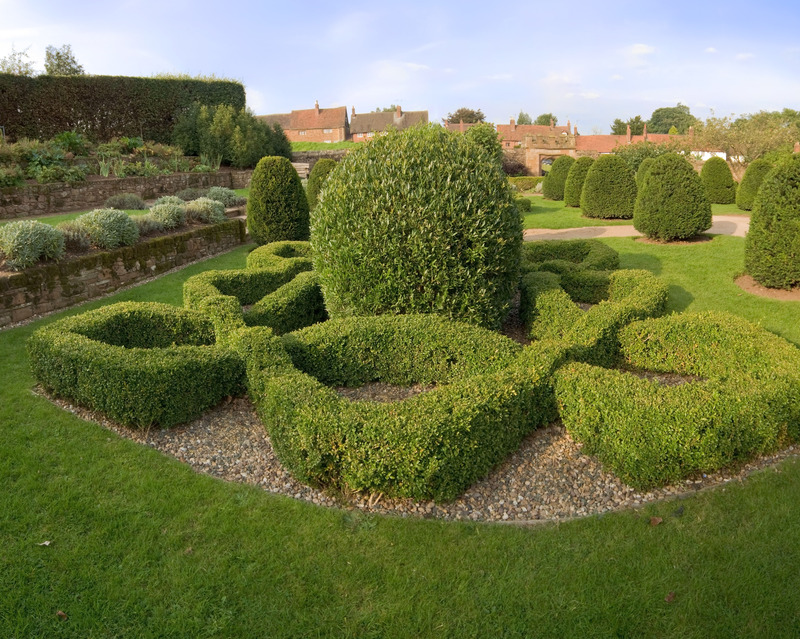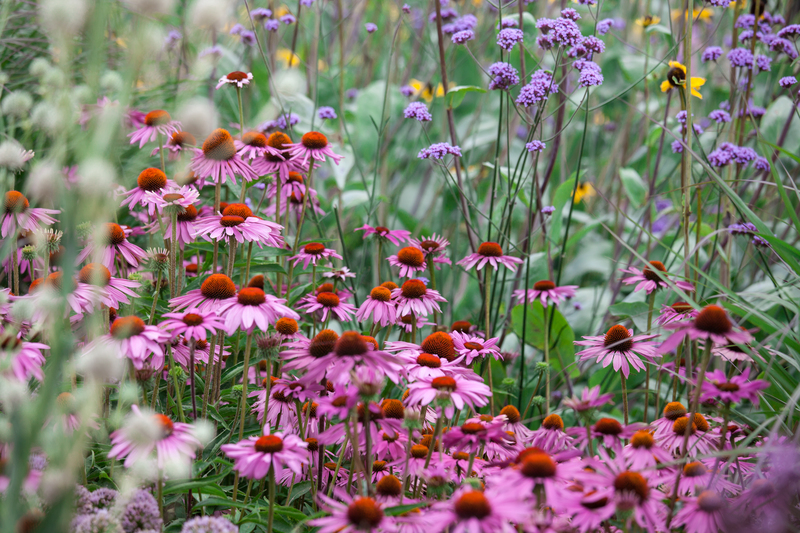Your First Garden: 9 Key Tips for Beginner Green Thumbs
Posted on 28/05/2025
Your First Garden: 9 Key Tips for Beginner Green Thumbs
Are you dreaming of lush flower beds, tasty vegetables, or a tranquil green space just outside your door? Starting your first garden can feel overwhelming, but with the right guidance, you'll be nurturing flourishing plants in no time. This comprehensive guide for new gardeners delivers nine essential gardening tips to help every green thumb-in-training blossom. Whether you want a vibrant flower patch, a thriving vegetable garden, or simply a touch of nature, these strategies provide all the groundwork you need. Let's dig into the best practices for beginner gardeners ready to embark on their first horticultural adventure!
1. Assess Your Garden Space
Before you plant a single seed, examine your outdoor area. Assess whether you have a spacious yard, a small patio, or just a balcony to work with. Understanding your available space determines what types of plants you can cultivate and which garden layout will be the most effective.
Consider These Key Questions:
- Sunlight: How many hours of sunlight does the spot receive daily?
- Soil: What kind of soil do you have--sandy, clay, loam, or a mix?
- Water Access: Is there a water source nearby for easy irrigation?
- Protection: Is your area prone to strong winds, heavy rains, or pests?
*Tip: Trace your garden during the day to observe sun and shade patterns. Most vegetables and flowers need at least six hours of sunlight.*

2. Start Small for Big Success
It's tempting to go all out and plant everything you can think of, but starting small is one of the best tips for beginner gardeners. A manageable space allows you to learn, make mistakes, and build confidence without feeling overwhelmed. Even a few pots or a 4x4 bed can yield a surprisingly generous harvest!
How to Begin:
- Choose a simple raised bed or a few containers if garden space is limited.
- Focus on easy-to-grow plants (see Tip #5 for suggestions).
- Expand your garden as experience and enthusiasm grow!
Remember: A thriving small garden brings far more joy and less frustration than a sprawling, neglected patch.
3. Know Your Garden's Soil
Healthy plants stem from healthy soil. Understanding your soil's type and fertility is crucial. Not all soil is created equal--clay is heavy and retains water, sand is well-draining but dries quickly, and loam is the ideal mix.
Soil Preparation Steps for New Gardeners:
- Test your soil: Many garden centers offer inexpensive soil test kits. Check for pH and nutrient balances.
- Add organic matter: Mix in compost, leaf mold, or aged manure to improve structure and fertility.
- Mulch: Use straw, wood chips, or bark to retain moisture and suppress weeds.
- Avoid walking on garden beds to prevent soil compaction.
Tip: If your garden soil is poor or compacted, raised beds or container gardening are excellent alternatives for first-time green thumbs.
4. Choose the Right Plants
One of the top tips for gardening beginners is selecting plants suited to your conditions and experience level. Review seed packets or plant tags for the following:
- Hardiness zone: Will the plant survive your local climate?
- Size and spread: How large will the mature plant get?
- Sun/shade requirements: Match these to your garden's light exposure.
- Water needs: Are you prepared for a thirsty plant or something drought-resistant?
Best Plants for First-Time Gardeners
- Tomatoes
- Lettuce
- Radishes
- Beans
- Marigolds
- Zinnias
- Sunflowers
- Basil
Starting your first flower or vegetable garden with these reliable favorites makes for a less frustrating, more rewarding experience.
5. Plan and Schedule Planting
A good garden starts with a good plan. Research planting dates suited to your region to maximize growth and harvest potential. Most plants have specific windows for sowing outdoors or starting seeds indoors.
Planning Techniques:
- Draw a simple sketch of your space to visualize plant placement and spacing.
- Group plants by height, sun/shade, and water needs.
- Note frost dates and use them to time your first and last plantings.
- Keep a gardening journal to track dates, weather, and results.
*Apps, free online calendar tools, and printable charts can all help set up your first-time gardening schedule for maximum success.*
6. Master Proper Watering Techniques
It's easy to over- or under-water as a new gardener. While all plants need water, their needs vary widely, and proper technique is key to a healthy garden.
Watering Best Practices:
- Water early in the morning to reduce evaporation and prevent plant diseases.
- Soak the roots, not the leaves: Use a watering can, drip hose, or soaker hose rather than overhead sprays.
- Check the top inch of soil; if it's dry, it's time to water.
- Group plants with similar water needs together.
- Observe each plant's response and adjust as needed.
Bonus Tip: Mulch not only keeps soil moist but also helps control weeds--a win-win for every beginner green thumb!
7. Feed Your Greenery: Fertilization Basics
Even the richest soil needs a nutrient boost after repeated plantings. Regular feeding is essential for robust plant growth, especially in container gardens whose nutrients wash out quickly.
Fertilizing Guidelines:
- Use slow-release granular or liquid fertilizers designed for your plant type (flowers, veggies, herbs, etc.).
- Organic options: Compost tea, fish emulsion, or kelp can provide a gentle nutrient boost.
- Follow package instructions--too much fertilizer can harm your plants.
- Observe for signs of deficiency such as yellowing leaves, stunted growth, or poor flowering.
*Balanced feeding is a critical tip for first-time gardeners who want lush, high-yielding plants.*
8. Keep Weeds at Bay
Weeds are inevitable in any garden, but diligent control in the early stages saves future headaches. Outcompete the unwanted plants before they get out of hand!
Simple Weed Management Strategies:
- Pull weeds by hand regularly, especially when young and easy to remove.
- Mulch your beds to suppress sprouting weeds and retain moisture.
- Use landscape fabric under mulched pathways for extra protection.
- Never let weeds flower or set seed; remove them as soon as you see them.
Remember: A weed-free garden reduces competition for water and nutrients, helping your desired plants thrive--an essential tip for new gardeners.

9. Pest and Disease Prevention
Nothing discourages a new gardener like seeing prized plants attacked by pests or disease. Instead of reacting to problems, focus on prevention and observation.
Top Protection Tips:
- Inspect plants daily for signs of trouble--chewed leaves, spots, or sticky residues.
- Encourage natural predators (ladybugs, birds) and plant pollinator-friendly species.
- Use row covers or gentle, organic sprays if infestations occur.
- Prune damaged or diseased foliage promptly to limit spread.
- Maintain good airflow: Space plants appropriately to reduce fungal issues.
Resilient plants grown in healthy soil are much less likely to suffer severe pest or disease problems--support nature, and nature will support you!
Your First Garden: Final Thoughts for New Gardeners
Starting your first garden is as much about patience and curiosity as it is about soil and seeds. Expect a little trial and error--every green thumb has learned this way! By following these nine key garden tips for beginners, you'll be set for a satisfying first harvest and a lifelong love of gardening.
- Assess your space and resources before planting.
- Start small and gradually expand.
- Focus on soil health and smart plant choices.
- Plan, water, feed, and weed regularly.
- Observe and prevent pests for a healthy garden.
With each new season, your skills and confidence will grow. Soon, your garden--no matter the size--will be a source of pride, sustainability, and serenity. Happy gardening, future green thumb!
Additional Resources for Beginner Gardeners
Latest Posts
Revitalize Your Neglected Green Space Now
Conquer Invasive Weeds with 3 Practical Tips
How to Design Inviting Seating Spots in Your Garden

